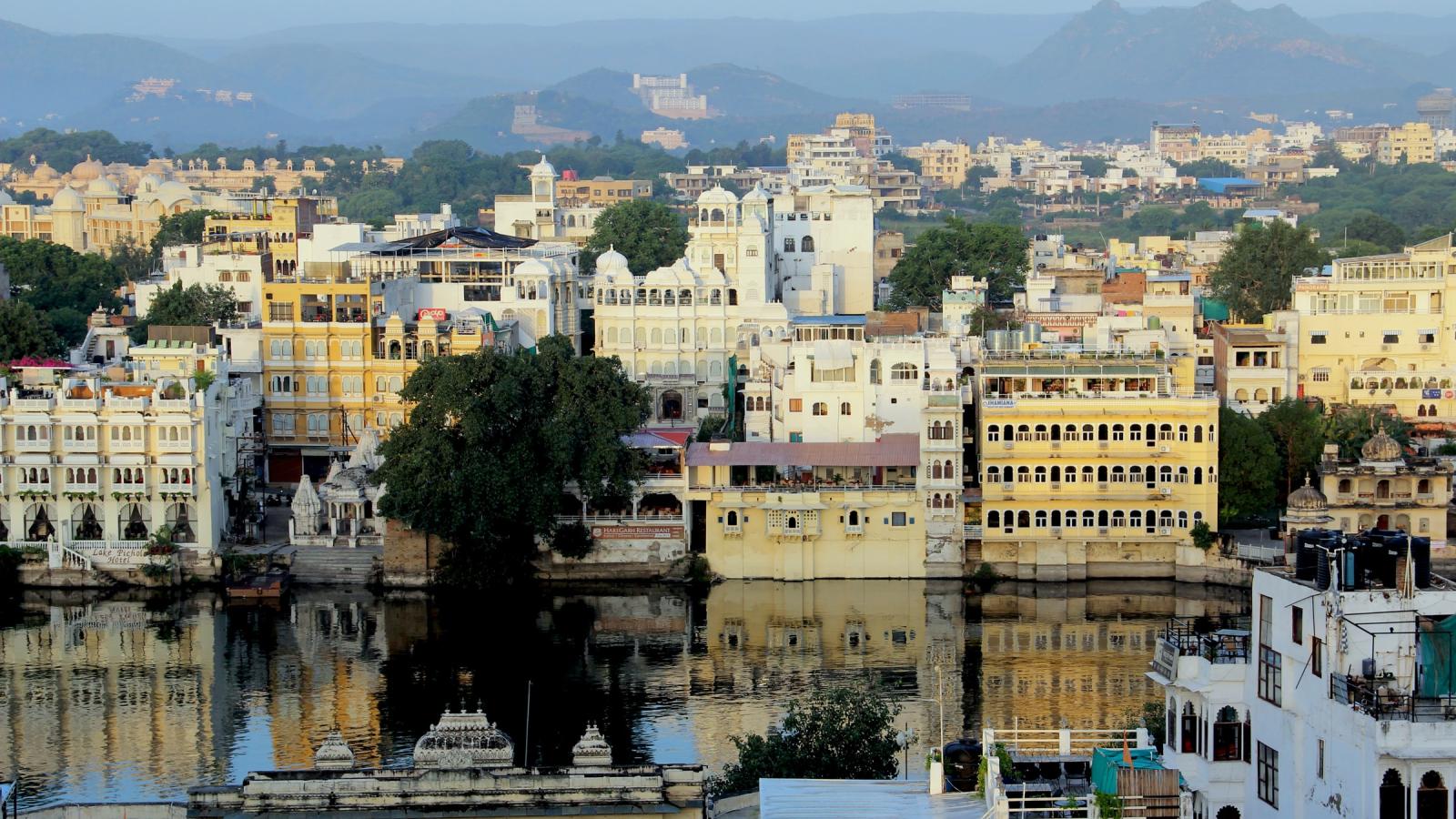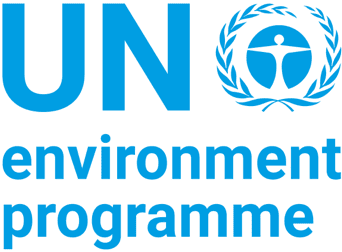United Nations Environment Programme
India
India is one of the world’s fastest-growing economies and accounts for over 17% of the global population. UrbanShift works in five Indian cities: Chennai, Pune and Surat, as well as Agra and the Puducherry Union Territory.
The UrbanShift project in India is implemented by UNEP and the Asian Development Bank (ADB), in partnership with the Ministry of Housing and Urban Affairs, National Institute of Urban Affairs (NIUA), Greater Chennai Corporation (GCC), Pune Smart City Development Corporation Limited (PSCDL), Pune Municipal Corporation (PMC) and Surat Municipal Corporation (SMC).
The second most populous country on the planet, India boasts a rich cultural heritage and diverse landscapes, from the snow-capped Himalayas in the north to dense rainforests in the south. The South Asian nation is also home to 8% of all known species, including the endangered Ganges shark, the Himalayan brown bear, and the Bengal tiger.
Urbanization in India has been on the rise since the country's independence in 1947. In 2020, cities made up 35% of India’s population and produced two-thirds of the $2.6 trillion national GDP. India has also made important advances in poverty reduction: by introducing some of the world’s most far-reaching rights-based legislation, the country has been able to lift around 273 million people out of multidimensional poverty between 2005-6 and 2015-16.
- POPULATION
-
1.38 billion
- ECONOMIC DRIVERS
-
Agriculture, Industry & IT
- URBANIZATION
-
35%
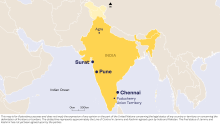
THE CHALLENGE
Indian cities are expected to generate 70% of the country’s future employment; at the same time, India will add 416 million people to urban areas between 2018 and 2050, effectively doubling the urban population. Building the infrastructure required to absorb this massive increase is proving to be an enormous challenge, especially since 35% of the country’s urban inhabitants already reside in informal settlements.
Additionally, India's per capita CO2 emissions, though significantly lower than the world average, have been steadily growing over the past decade, with urban sectors such as transport, industry, buildings and waste accounting for nearly 44% of total national emissions.
India is also extremely vulnerable to climate events – from urban floods and the heat island effect to increased water stress and frequent cyclones – ranking seven on the Global Climate Risk Index (2021). Improving the quality of life for current and projected urban residents and delivering equitable urban services are development priorities for the country, together with reducing greenhouse gas (GHG) emissions.
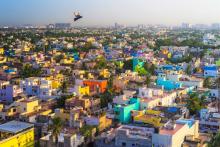
CHENNAI
Chennai, the capital of the southern state of Tamil Nadu and the fourth largest metropolis in India, has come a long way since its beginnings as a cluster of fishing villages in the 16th century. Chennai’s thriving automobile and IT industries are the major contributors to the city’s estimated $58 billion GDP, making it a key player in the regional and national economy.
Chennai has been witnessing extraordinary physical expansion and economic growth over recent years; the population of the Chennai metropolis currently stands at around 11 million. However, climate change, unsustainable land-use patterns, fragmented urban planning, overlapping jurisdictions and limited capacity, among other challenges, have hampered the city's efforts to advance resilient urban development. Chennai also grapples with frequent floods, drought, air and water pollution and urban encroachment.
URBANSHIFT'S INTERVENTION
In Chennai, the work led by the Greater Chennai Corporation (GCC) will focus on the demonstration of a nature-based approach to the restoration and conservation of Kadapakkam Lake, a key water body within the Kosasthalaiyar Basin. This intervention will deliver improved urban flood protection and resilience as well as biodiversity benefits, given that the lake serves as a habitat for many species of flora and fauna. The Kadapakkam Lake model will be scaled up and replicated in other water bodies in the city.
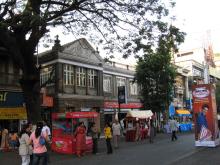
PUNE
Located in the central-western state of Maharashtra, Pune is the seventh most populous city in India. It has historically been considered a center of higher learning and is also an important hub for the country’s software, automobile and electronics industries. Pune was judged the second most livable city in India on the Ministry of Housing Urban Affairs’ “Ease of Living Index 2020.”
With a population of about 6.5 million, the city is presently facing rapid urban sprawl; between 2000 to 2015, almost half of all major urban development in Pune took place near peripheral areas. This development pattern has aggravated issues of congestion and air quality in the city, while parks and vital green spaces have been dwindling.
URBANSHIFT'S INTERVENTION
In Pune, UrbanShift will support demonstration of compact urban growth through the creation of an integrated, low-emission TSA (Transit-Oriented Development Station Area) plan, identifying solutions to improve the accessibility of public transport across the city. The project will include the advancement of green corridors as well as electric vehicle (EV) charging infrastructure, with the goal of ameliorating issues of urban sprawl, air quality, traffic congestion and declining green spaces in the city.

SURAT
Surat, located on the banks of the Tapi River in the western state of Gujrat, has been a prosperous seaport for most of its history. Today, the city is an economic powerhouse, with a well-established diamond and textile industry, and is projected to be the world’s fastest growing city between 2019-2035.
Surat has a population of approximately 7 million, half of which comprises migrants from various parts of Gujrat and other Indian states. The city has witnessed unprecedented growth, expanding about 40 times in area between 1961 and 2009 and resulting in encroachment into coastal zones.
These recently expanded built areas are highly susceptible to flooding, both from increased rainfall as well as sea level rise. Further, growing tourism in the coastal zones is likely to impact the local ecosystems, aggravating climate change-related vulnerabilities.
URBANSHIFT'S INTERVENTION
In Surat, UrbanShift will support the demonstration of integrated and climate-resilient coastal zone development to ensure coastal ecosystems are protected and enhanced to provide economic and environmental benefits. This will also include upgrading the Dumas Seafront recreational areas through low-emission mobility strategies - such as public bike sharing - and nature-based solutions, including permeable pavements and bioswales to augment natural and storm drainage.
ADDITIONAL CITIES
Agra
In the northern city of Agra, famed for the historic Taj Mahal, UrbanShift is focused on improving mobility, especially through the public transport network. The program will support the city to develop green, low-emission transit corridors, based on previous experience in Pune, with the aim of increasing the accessibility of public transport and reducing the impacts of urban sprawl.
Puducherry Union Territory
Located on the southern Indian coast, the Puducherry Union Territory is a fast-growing urban center and tourist destination. UrbanShift’s priority is to provide technical support to the Union Territory for the preparation of a Comprehensive Development Plan (CDP) for Karaikal, Mahe and Yanam, based on similar work in Surat. The objective of this intervention is to anchor the principles of carbon neutrality in the CDP, increasing the Puducherry region’s coastal resilience and protecting coastal ecosystems through nature-based solutions.
PROJECT BUDGET
- GEF Grant: $17.2 million
- Co-financing: $499 million
CONTACT
For more information about UrbanShift’s activities in India, please contact:
- Sudhir Sharma, Programme Management Officer, Climate Change Mitigation, UNEP
- Arunkumar Samuel Abraham, Senior Environment Specialist (Consultant), Sustainable Development and Climate Change Department, ADB
- Akira Matsunaga, Senior Urban Development Specialist, South Asia Urban and Water Division, ADB
Implementing Agencies
The UrbanShift project in India is implemented by UNEP and the Asian Development Bank (ADB), in partnership with the National Institute of Urban Affairs (NIUA), Greater Chennai Corporation (GCC), Pune Smart City Development Corporation Limited (PSCDL), Pune Municipal Corporation (PMC) and Surat Municipal Corporation (SMC).
Country Coordinator
Avantika Arjuna coordinates UrbanShift's capacity-building activities in India.
Related Content
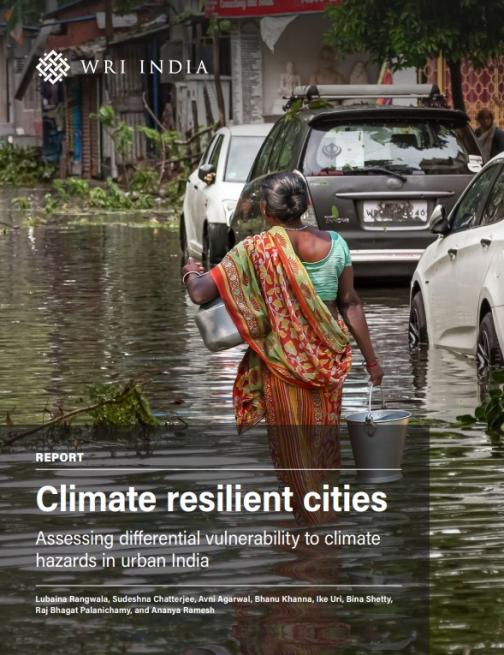
Climate Resilient Cities: Assessing Differential Vulnerability to Climate Hazards in Urban India
The report highlights the need to integrate equity into climate action planning in Indian cities. It examines how socioeconomic inequality and marginalization shape climate risks.
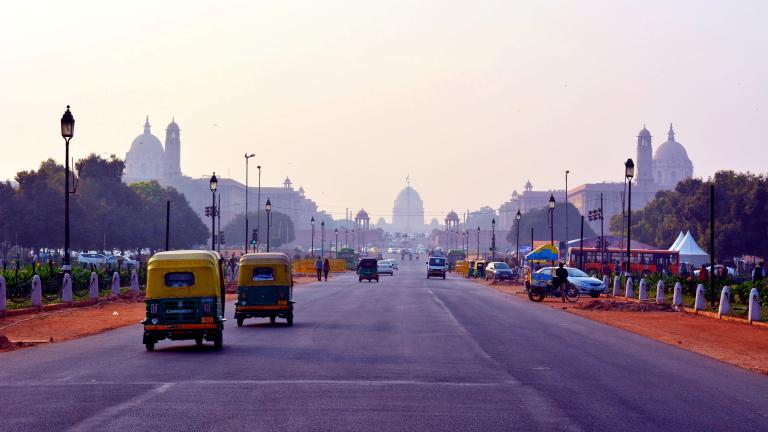
India 2nd National-Local Dialogue
The dialogue will focus on ‘Transitioning towards Innovative Cities’ and 'Transit-Oriented-Development'.
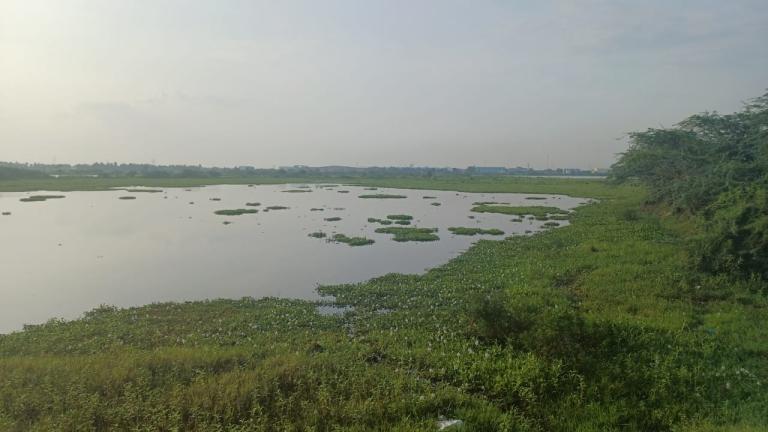
How Chennai is restoring Kadapakkam Lake with nature-based solutions
An UrbanShift spotlight on integrated water management, climate adaptation, and local innovation
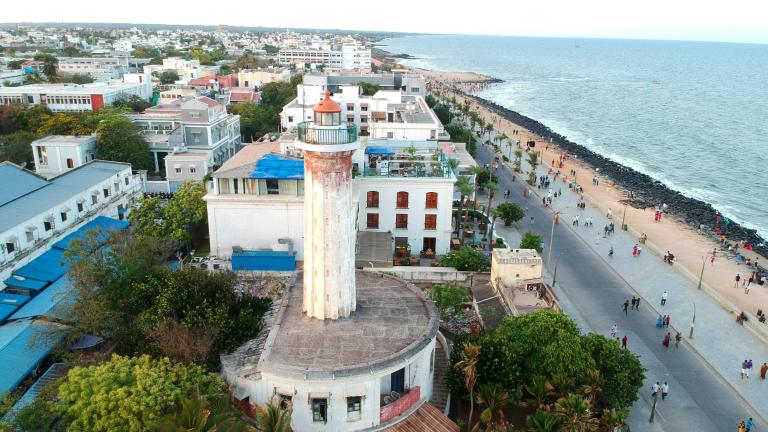
UrbanShift Geospatial Planning Lab in Puducherry: Understanding Climate Hazards and Co-Creating Resilience
For two days, key stakeholders gathered to explore how geospatial data can inform local solutions to heat, flooding, and cyclone-related risks.
